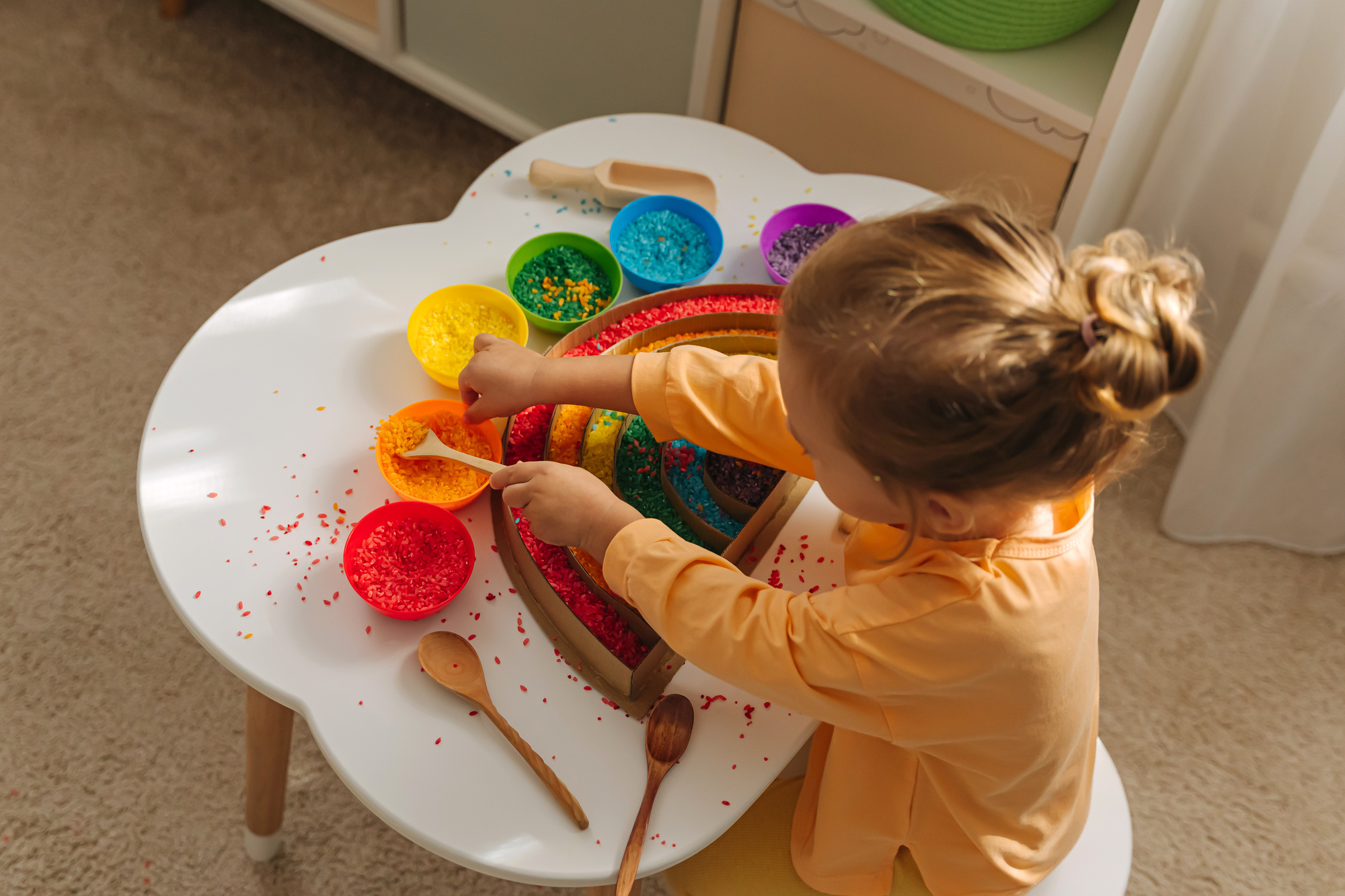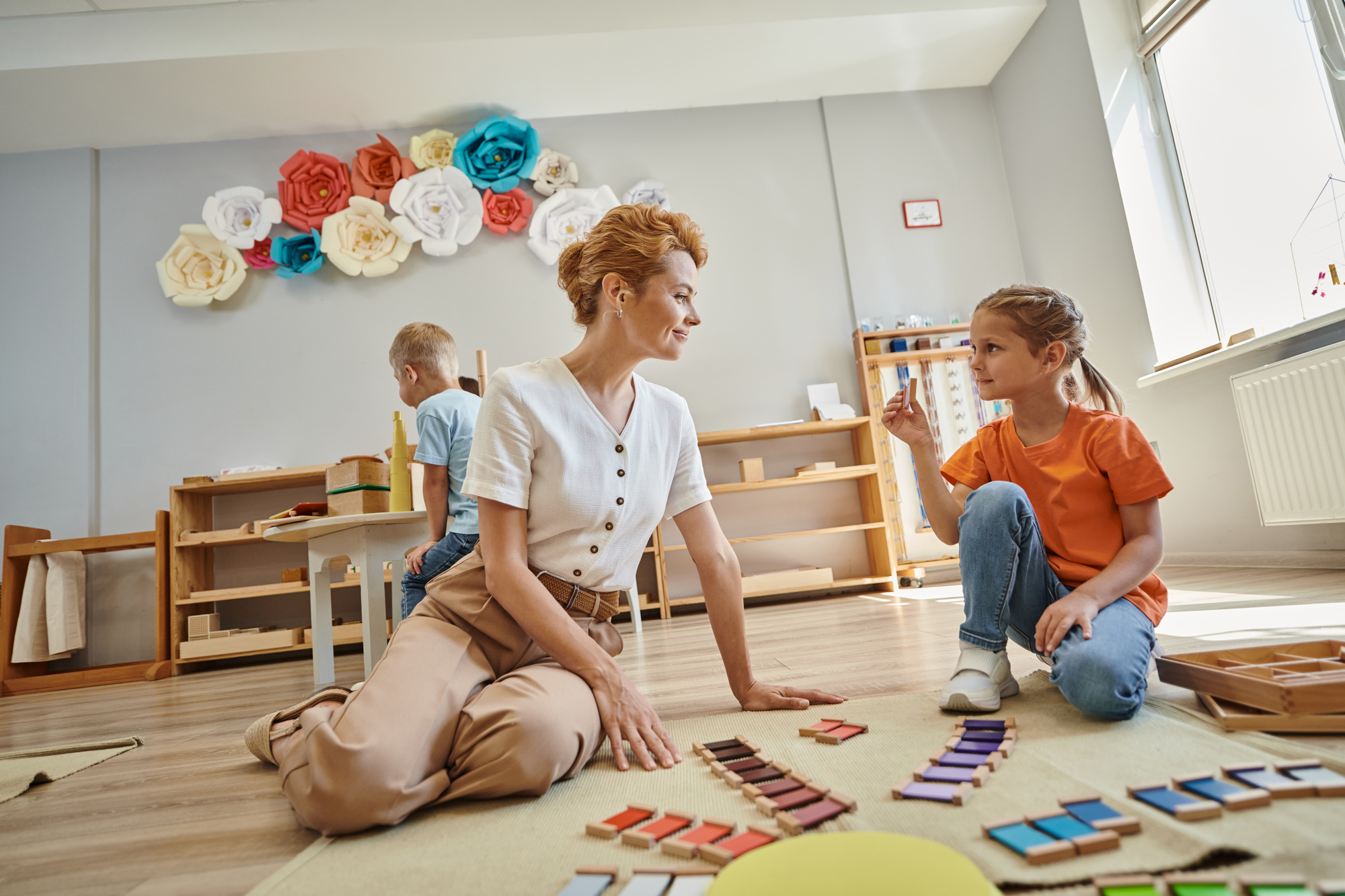Play-based learning reveals unexpected wonders. While playing seems like mere fun to children and parents, there’s profound developmental progress happening behind the scenes. Children learn various soft skills through games and rough-and-tumble activities with their friends. Such skills persist and stay with them into their adult years.
For stakeholders like parents, educators, and policymakers interested in a child’s holistic development, understanding how play moulds future leaders is indispensable. This piece sheds light on the significance of play-based learning both at home and in academic settings, especially during the early developmental years of a child.
Table of Contents
The Benefits Of Play-Based Learning
- Cognitive Development
If you take a stroll near preschools in your locality, you’ll notice kids engaged in playful activities with their classmates and teachers. This scene is common in establishments providing childcare in Benaroon Road Belmore, for example. But what might not be evident is the cognitive machinery at work. As children tackle challenges during play, their minds become more agile, honing their problem-solving capabilities and amplifying thought processes.
Beyond this, children are pushed to make decisions when they find themselves in play-based situations. Such an environment supports the refinement of their analytical thinking skills, gearing them up for more significant life choices in the future.
2. Social And Emotional Development
Have you ever seen kids squabble while playing and then make up right after? On the surface, they seem like trivial arguments, but hidden beneath are invaluable life teachings. Through play, children gain direct insights into teamwork dynamics and conflict resolution, realising the importance of cooperation.
On the emotional front, role-playing games give children a first-person point of view of different people. During role-play, children often assume various characters and perspectives. This fosters deep empathetic understanding, broadening their emotional perception beyond just their own.
3. Communication And Language Skills
Conversations during playtime aren’t just chatter. Play promotes the development of advanced communication skills. In these playful interactions, children hone their listening skills and grasp the subtleties of conveying thoughts. This playful ambience further doubles as an informal classroom, assisting children in expanding their lexicon and mastering the intricacies of language expression.
4. Physical Development
Children explore their physical limits through play, testing their bodily capabilities and mastering their movements. Proper physical development correlates with a child’s cognitive and attention skills. Whether it’s swinging from the monkey bars or creating intricate patterns with beads, their brains and fine and gross motor skills get a solid workout. Besides that, play is an enjoyable form of physical activity, instilling an appreciation for staying healthy in kids.
5. Love Of Learning
Play transforms the learning experience into an adventure. When kids engage in play-based learning, their enthusiasm for education deepens. This approach surpasses rote learning. It’s a method of learning that sticks. Why? Because when kids find joy in learning through play, they’re more likely to remember and apply what they’ve picked up. Hence, play aids in improving memory retention and spurs an ongoing thirst for knowledge in children.
Nurturing Leadership Traits Through Play
1. Self-Confidence And Self-Directed Learning
Leaders need to demonstrate grit and persistence when tackling challenges. Play-based education provides a nurturing space for children to encounter and learn from difficulties. Be it a challenging puzzle or a complex building project, mistakes should be seen as learning avenues for children. This perspective motivates them to keep going, adapt their strategies, and achieve success amid difficulties.
2. Collaboration And Adaptability
You can’t play most games alone. Hence, play-based learning encourages children to interact with others. Playing in groups teaches children the value of teamwork. They internalise the concepts of sharing, patience, and respecting diverse viewpoints.
Furthermore, the unpredictable nature of play trains children in adaptability. A spaceship in today’s game might morph into a submarine tomorrow, urging them to think flexibly and react promptly. These are skills future leaders need since change is an inevitable factor in this world.
3. Creativity And Innovation
During play, a cardboard box transforms beyond its plain identity. It can be a fort, a spaceship, or a magical castle in the eyes of a child. These imaginative activities pave the way for inventive thought processes. Beyond imagination, children evolve into budding innovators, brainstorming unique solutions to challenges encountered while playing.
Integrating Play-Based Learning Into Education Systems
1.Challenges And Solutions
While play-based learning has its advocates, sceptics exist. The real task is altering the perception that playing lacks seriousness and is unrelated to academics. By communicating its many advantages and role in overall child development, you can help change attitudes.
Schools and households could bring in versatile play resources emphasising unguided play to bring this to fruition. Children utilise their imaginations by not following a structure and putting their creativity in overdrive. Set aside dedicated playtime and foster environments where making mistakes is part of the learning process.
While modern technology sometimes gets a bad rap, it does hold merits in advancing child development. Computers and tablets can also enhance a child’s creative and communicative abilities. That said, monitoring their screen time and the digital content they engage with remains vital. Technology is useful, but only in moderation.
2. Fostering Partnerships
To champion the cause of play-based learning, collaboration goes beyond being just advantageous—it becomes essential. Educators, parents, and policymakers need to unite and recognise their collective duty towards rearing the upcoming generation. Through effective collaborations, pooling resources and sharing knowledge becomes possible, leading to strategies that seamlessly incorporate play-based learning into school curriculums.
Not just within structured environments, but community entities, local enterprises, and even neighbourhood collectives also hold significant roles in this context. They can provide spaces, sponsor events, or simply spread the word, creating an environment where play-based learning is not just accepted but celebrated. A united effort can make the comprehensive vision of play-based learning a reality.
Conclusion
Homes and childcare centres, through play-based learning, lay the foundation for shaping future leaders. By promoting creativity, strengthening communicative abilities, cultivating analytical skills, and emphasising emotional awareness, children equip themselves to excel in a constantly evolving environment.
Play readies children to evolve into tenacious, self-reliant, and versatile frontrunners capable of tackling hurdles, innovating, and working collaboratively. Prioritise play-based learning today for sculpting tomorrow’s trailblazers.











